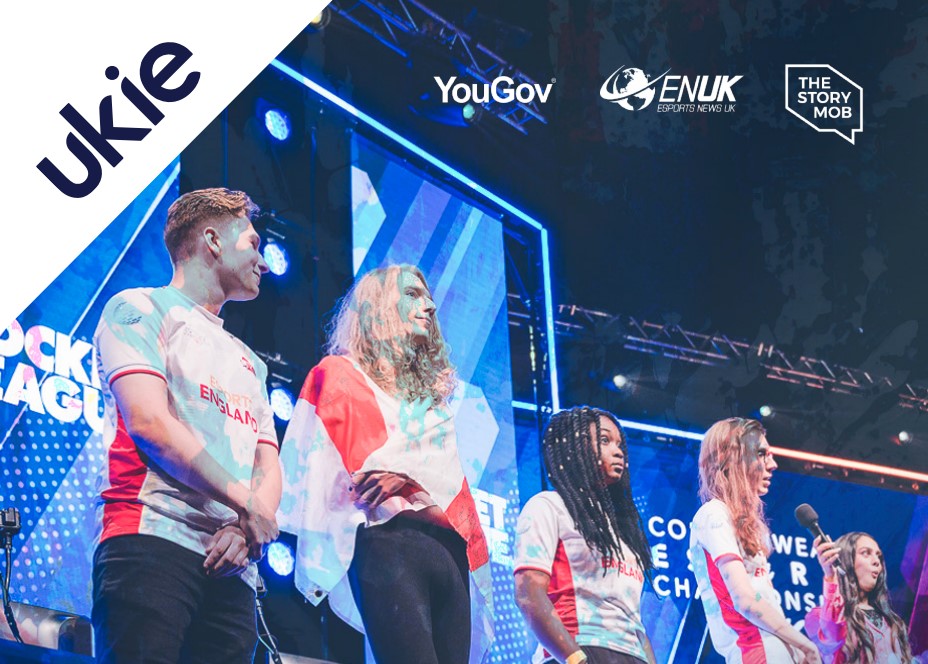- The UK is home to the largest community of student esports players in Europe
- YouGov data finds huge overlap between esports and traditional sports fans
- UK esports talent go on to build global brands as hosts and commentators – but the number of professional players is lacking
A neat guide to the story of esports in the UK so far, the report incorporates exclusive data from YouGov on the playing, buying and following habits of UK fans and considers the opportunities and challenges the industry faces.
Through a series of interviews with its key figures, ‘Esports in the UK’ notes the esports industry is small but high potential. Growing at an annual average rate of 8.5% between 2016 and 2019, the esports industry supported £111.5m in Gross Value Added (GVA) in 2019. Its contribution to the UK economy includes its relationship to sales of video games themselves, with 46% of esports followers in the UK using online personalities and streamers to discover new games.
At the same time, UK is home to some of the biggest esports and games organisations in the world, with competitive video game giants such as Riot Games, Twitch and FACEIT all holding offices across the country.
There are a number of British pro players at the top of their respective games, such as Fortnite player Jaden ‘Wolfiez’ Ashman and Fnatic’s VALORANT personality Jake ‘Boaster’ Howlett – not to mention the wealth of British desk hosts, commentators, analysts, streamers and content creators achieving global recognition.
But the report notes a level of stagnation in the industry that reflects a wider worldwide trend. Key issues cited include the struggles by esports teams to make a profit, and the fragmented nature of the industry.
For example popular esports titles League of Legends and Counter-Strike: Global Offensive are games as different to each other as football and golf. Meanwhile revenues from esports primarily come from highly competitive brand sponsorships that leave esports team organisations ‘fighting for a slice of the same pie’.
Meanwhile, countries such as the US, China and Korea continue to dominate the global esports market whilst the UK is falling behind European competitors such as Spain and France.
But it’s not all doom and gloom. The report identifies a significant overlap between interest esports and traditional sports amongst dedicated followers, posing an effective way of bringing esports into the mainstream.
Sporting personalities such as Virgil van Dijk and Usain Bolt have already partnered with esports organisations, whilst David Beckham and Lando Norris are co-owning and founding their own, bringing millions of fans into the world of games with them.
As for the esports players of tomorrow, the report shows the immense popularity of esports in UK universities – boasting the largest collegiate community in Europe.
This is in part thanks to the dedicated university-led organisations that offer structures for esports players to directly enter the professional ranks. NUEL (National University Esports League) offers the chance to progress to the Europe-wide University Esports Masters.
Meanwhile, NSE (National Student Esports) delivers the Intel FutureGen programme, selecting 20 talented individuals amongst the student community and providing them with access to Q&As, workshops, mentors and industry events.
And when it comes to the difficulty of turning a profit, the report remains optimistic about opportunities for teams as general understanding of the sport and its global appeal improves.
As the number of big-name brands like Sky, Coca-Cola and Intel continue to back esports organisations, the recent purchase of UK esports organisations by Savvy Games Group (SGG), owned by Saudi Arabia’s Public Investment Fund, set a precedent for new foreign direct investment into UK esports.
Sam Collins, Co-CEO of Ukie, said:
"A considerable challenge facing UK esports right now is its lack of data – and lack of identity.
By telling the story of the sector in this report, we hope to help investors, politicians, press and other interested people to get to grips with its immense opportunity.
Doing so will have a profound positive impact on the next stage of the industry’s evolution at a crucial point in its history."
Karen Low, Managing Director of The Story Mob, said:
"As a PR agency rooted in gaming culture, we've had front-row seats to experience the esports industry's tremendous innovation and growth. We've worked with all manner of trailblazers and visionaries from around the world who have helped carve its path, and we're delighted that they've been so open with their knowledge and contributions to this report. It's critical reading for anyone in the industry, and for those brands who want to connect with young digital natives and feel compelled to explore more."
The full report is available to download here.

